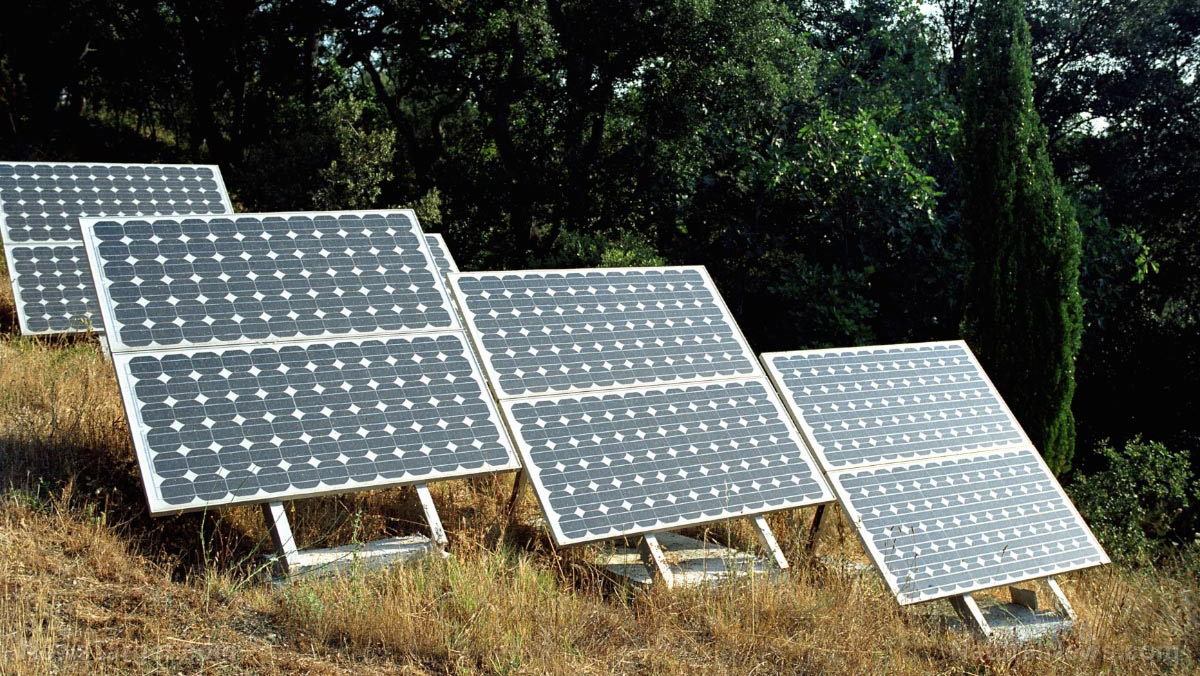Federal tax credit may be rolled out for standalone energy storage systems
03/23/2021 / By Ramon Tomey

Federal legislators have introduced a bill to include standalone energy storage systems to products with applicable investment tax credit (ITC). The Energy Storage Tax Incentive and Deployment Act of 2021 would encompass energy storage projects for residential, commercial and utility-scale purposes. According to energy storage advocates, the proposed legislation would put standalone storage technologies on “a level playing field” with other clean energy technologies that receive the ITC.
Reps. Mike Doyle (D-PA), Vern Buchanan (R-FL) and Earl Blumenauer (D-OR) introduced the bill March 9 to the House of Representatives. Meanwhile, Sens. Martin Heinrich (D-NM) and Susan Collins (R-ME) introduced companion legislation to the upper chamber of Congress. The draft bill introduced by Doyle and his colleagues will involve “[amending] the Internal Revenue Code of 1986” to accommodate the ITC for these energy storage technologies.
In a statement, Doyle said the proposed bill “would encourage the use of energy storage technologies, helping [to] reach … climate goals and create a more resilient and sustainable future.” The Pennsylvania lawmaker added: “Cost-efficient energy storage is essential for adding more renewable energy to the grid and will increase the resiliency of … communities.” According to Doyle, the bill he introduced would promote greater investment and research into energy storage technologies, bolster the advanced energy economy and create more clean energy jobs.
Buchanan said: “New technology like large-scale battery storage is a critical step on the path to a cleaner and more efficient energy future. Investing in alternative energy sources has the added benefit of creating thousands of new jobs in southwest Florida and across the country.

Meanwhile, Blumenauer remarked that he was “glad to join” Doyle in his effort. “Energy storage is a critical part of the bold, comprehensive agenda that we must pursue to decarbonize our economy and address the climate emergency,” he said.
Standalone storage systems aim to hit two birds with one stone – reliable energy and less emissions
Energy Storage Association (ESA) Interim CEO Jason Burwen lauded the bill introduced by Doyle and his colleagues in the lower chamber. According to the ESA head, the bill incentivizes development of standalone energy storage technologies on the same level as clean energy technologies such as solar. “We’ve seen the ITC be critical to bringing down costs of other clean energy technologies and accelerating their adoption, so we think that’s important for storage as well,” he said.
Energy storage systems are often used in tandem with renewable energy sources such as wind and solar power. These systems usually pertain to batteries, but they also include systems like pumped hydropower, hydrogen storage, thermal energy storage, regenerative fuel cells and superconducting magnets. Energy storage systems come in handy when demand is high and power is more expensive and when there is a power outage and backup energy supply is needed. (Related: One step closer to decentralized renewable energy? New magnetic floating flywheels may provide the storage solution.)
Under the current system, storage systems only qualify for the ITC if they are installed with eligible energy sources such as solar. Residential, commercial and large-scale utility solar systems are afforded a 26 percent tax credit. But this is due to be tapered off in the next two years – to a permanent 10 percent ITC for commercial developments. Residential installations will no longer have the tax credit applied after 2023. The bill by Doyle and his colleagues would extend this tax credit to a wider range of applications, not just solar.
Citizens for Responsible Energy Solutions Executive Director Heather Reams applauded the efforts of the lawmakers behind the tax credit bill for storage systems. “Expanding investment tax credits for energy storage is a pro-growth, no-brainer policy that will support any power generation connected to the grid … to become more efficient, productive and competitive,” she said.
Reams commented that resilient and reliable energy storage is critical to building a clean energy economy. She continued: “Federal tax incentives will spur significant private sector investments in energy storage, putting the full power of American innovation [toward] building our next-generation energy infrastructure for the future.” (Related: New stable fuel cell could be the breakthrough that makes energy storage economically feasible.)
Ultimately, Burwen exhorted Congress to pass the bill into law at the soonest in order to “power the economic recovery with jobs that build a cleaner, more resilient future for all.” He remarked: “Without more energy storage, the U.S. will fail to achieve its urgent climate and clean energy goals and miss an opportunity to make power infrastructure more resilient to climate change.”
Visit Power.news to read more news about tax incentives for storage systems and other new energy technologies.
Sources include:
Doyle.House.gov 1 [PDF]
Tagged Under:





















